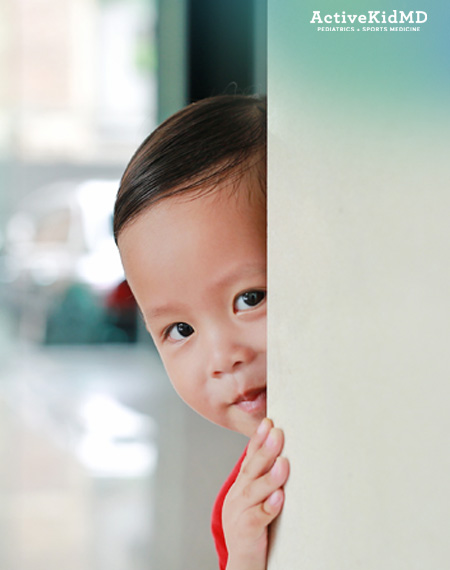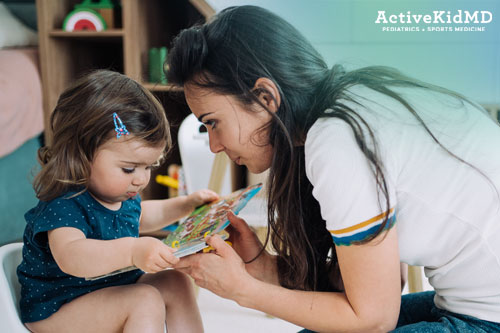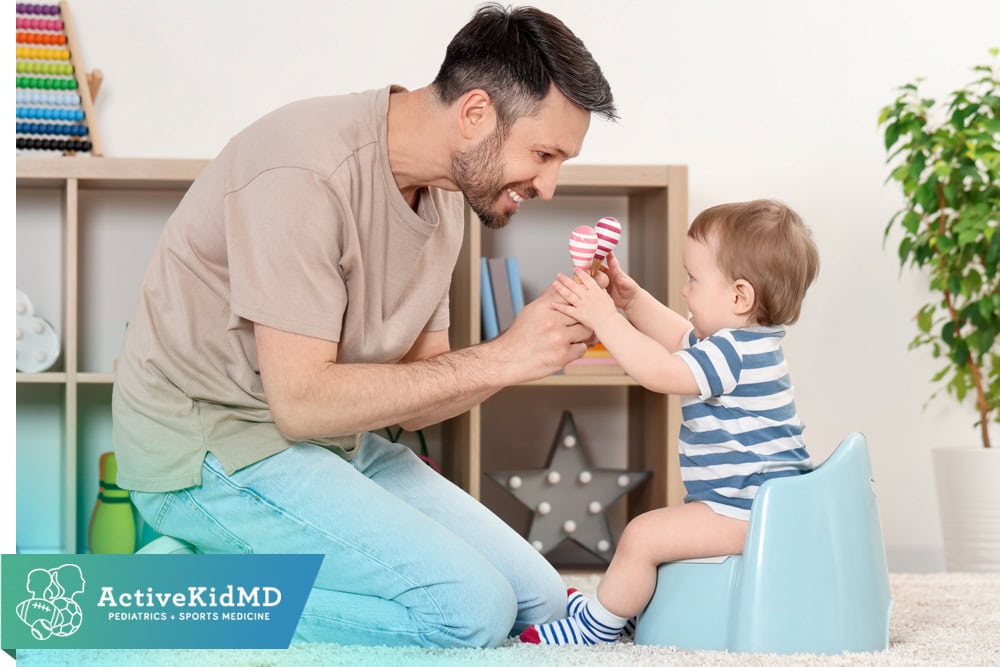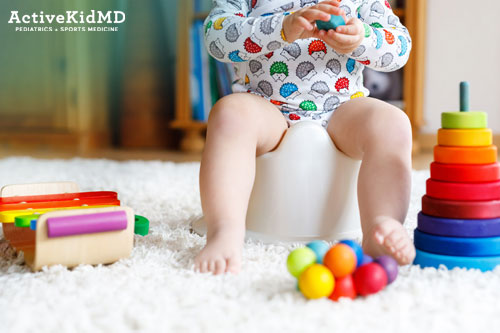WHEN and HOW does a parent start the potty-training process?
Potty readiness is all about your child. There are many unique styles for how to potty train a toddler, which is a good thing because each child is different! Choose what will work best for YOUR family.
Get your child used to the idea by introducing the potty. Have the potty in the bathroom from the first year of life so it’s already a familiar item, and let your child sit on it wearing a diaper before potty training starts. Play some games where you both teach a favorite toy how to use the toilet or potty. Read books about potty training.
 When do most kids begin to potty train, and what would be considered too late?
When do most kids begin to potty train, and what would be considered too late?
Don’t focus too much on your child’s age; there is no right time or age to begin potty training. Every child is different. Though there are common starting ages for children, what matters most is whether your child shows developmental signs of readiness. Potty training requires kids to have certain physical, cognitive, and emotional skills.
In general, start looking for signs of potty training readiness around your little one’s second birthday. Very few kids are ready to potty train before age 2. Once your child is ready to start, just know that the potty-training journey can take about 8 months from beginning to success. About 50 percent of kids complete potty training at age 3 (other than the occasional accident, of course!), but almost all finish by age 3.5. Usually, girls accomplish potty training about 3 months earlier than boys.
How can you tell your child is ready to potty train?
Can your child follow simple instructions? Does your child show interest in the potty or signal when they need to go? Does your child stay dry on their own for at least 2 hours? Or has your child started hiding when they need to pee or poop? This may be a sign that they are not ready!

Describe the signals. Your toddler has to have enough maturity to recognize their body’s signs and that’s where you come in, parent, to help guide them with that skill. Be sure to be vocal about when you need to go to the bathroom. Say things like, “My tummy feels a little funny; I think I need to go potty!” Know that some kids start training before they recognize the urge, and attempt “tries” on the potty. If they want to do the same, let them. Just getting them to associate going over to the potty and getting ready to go is a big step toward success.
Be patient and make sure they are ready to try! Sometimes kids seem ready to start but after showing a lot of enthusiasm for their new potty process, they lose interest! This is time for a pause and reset your expectations. You may need to wait a few more weeks or months to see if your child’s interest in their using their own potty emerges again. In the meantime, don’t worry; this is not at all unusual. It’s ok to take a break for a few weeks and try again.
Are there any things parents should avoid doing while potty training?
Remember, do not push kids into potty training, it’s a guaranteed setup for failure and causes stress for the child and you.
A few more words of wisdom to keep in mind about potty training.
Some children potty train in days, others in weeks. It’s crucial that you remain calm throughout. Don’t even try to potty train when you’re moving to a new house, expecting a new baby or there’s some other stressful event happening in your lives. Wait until things settle down so you can both cope with the inevitable accidents.

- Prepare for kickoff. These fun ways to start potty training can help build excitement for your toddler. Think about what will appeal most to your little one—would they like a sticker chart? Colorful potty training certificates? Or a fun “going to the potty” song you make up together. Get ready to think outside the box!
- Hit your favorite store! Make sure you have everything you need for successful potty training before the big day. The essentials include pull-ups and a potty seat or child-size potty chair. While it can be tempting to grab what you need on a regular run to the store, consider making it an event with your toddler. Shop together for this transition: Special time with just Mom or Dad is important to little ones and taking a trip to the store together just for potty training essentials can help build excitement for what’s ahead. Buy fun big kid underwear.
- Go for it! If you can, stay home for a full 2 days. In the beginning, ask your child about every 40 minutes if they need to use the potty. If they do, put them on the potty and see how you go. Don’t leave them on for more than a few minutes. If they don’t go within a few minutes, let them run off to play and try again later.
- Celebrate milestones. Kick off the big potty-training journey by celebrating milestones along the way with small rewards. Always make a big deal the first time they pee in the potty.
- As you’re starting to potty train your child, remember these important tips: Consistency, patience, creativity, and encouragement.
Consistency is key. While consistency in your approach is important, such as sticking to pull-ups, once you’ve transitioned them from diapers, no amount of cajoling or forcefulness will ever convince a child to potty train before they’re ready. NONE! And research shows that waiting a little longer to introduce potty training to your child can actually increase your chances of long-term success. Let’s be honest: There will be some tough moments for you both. Stay encouraged! Potty training doesn’t happen overnight. But with a positive attitude, lots of love, and the ability to find shared joy in each little success, it can be a great experience for you both!


 When do most kids begin to potty train, and what would be considered too late?
When do most kids begin to potty train, and what would be considered too late?